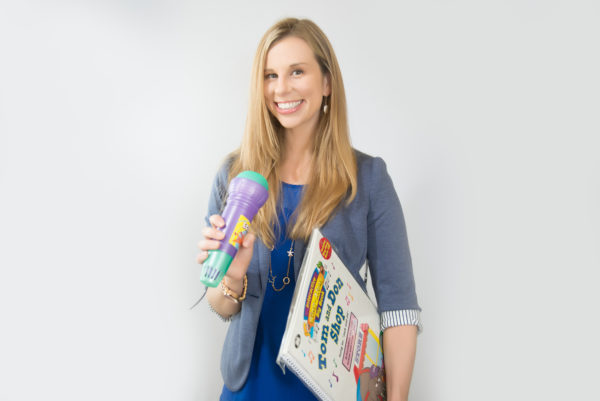
As a Pediatric Speech Therapist, I like to think of questions like “Goldilocks and Three Bears.” There are questions that are “too easy,” questions that are “too hard,” and there are “just right” questions. Let’s talk about each of these:
Questions that are too easy tend to be “quiz questions.” This is when we are constantly asking “what’s that.” These questions don’t teach, but rather fact check what your child knows. Instead of asking “what’s that,” teach your toddler something new by commenting. “That’s a cow…He eats grass, see? He is eating the grass.” Now we are not just “quizzing” on the word “cow.” We are teaching something new. We are also teaching different types of words (verbs, adjectives, etc) and how to use more sophisticated grammar such as verb + -ing (“eating”). This is strategy speech therapists refer to as commenting.
“Too-hard” questions tend to be “wh” questions that a child is still learning. Children learn yes/no questions first and “wh” questions come later. It takes some time to catch on that “where” means a place, “who” means a person, etc. You can support your child in learning how to answer questions by providing support. This is called scaffolding. For example, while reading a book with your toddler, you can ask “Where is he going?” while pointing to the building in the picture. This teaches children how to answer “wh” questions while allowing them to be successful along the way.
If your child is already answering “wh” questions, you can work on more advanced skills such as making predictions (“What do you think is going to happen next?”) This teaches children how to make inferences, a skill that is important for academic success. You can teach cause and effect by asking “why” questions, which tend to develop later. Talk about facial expressions and how a character in a story feels. A large emotional vocabulary helps with social development and self regulation (“Name it to tame it”-Siegel & Robinson, 2012). Talk about why someone feels a certain way to help your child understand different points of view. Remember to continue to scaffold so you can support your child as they are learning new skills.
Asking questions that “guide” your child is known as an “elaborative style.” This contrasts with a “repetitive” style that is related to “fact checking.” It turns out an elaborative style is closely correlated with more richly structured narratives one year later (Fivush & Reese, 1993). So next time you find yourself asking “What’s that?” think about all of the skills you could be teaching by simply changing what you ask.
References:
Reese, E., and R. Fivush. “Parental Styles of Talking about the Past.” Developmental Psychology, 29: 596-606, 1993.
Reese, E., C. A. Haden, and R. Fivush. “Mother-Child Conversations About the Past: Relationships of Style and Memory over Time.” Cognitive Development, 8: 403-30, 1993.
Siegel, D. J., & Bryson, T. P. (2012). The Whole-Brain Child. London: Constable & Robinson.

Brooke is the owner of The Speech Dynamic LLC , where she provides play based and family centered speech and feeding therapy. in the Greater Houston area, She is the co-creator of “Wiggle time,” an interdisciplinary curriculum for pediatric therapy. She has presented at The North Carolina Exceptional Children’s Conference regarding embedding language into routines. She has also shared her expertise on a panel for The University of North Carolina at Chapel Hill. Brooke has a passion for helping families understand the importance of play for speech & language development






